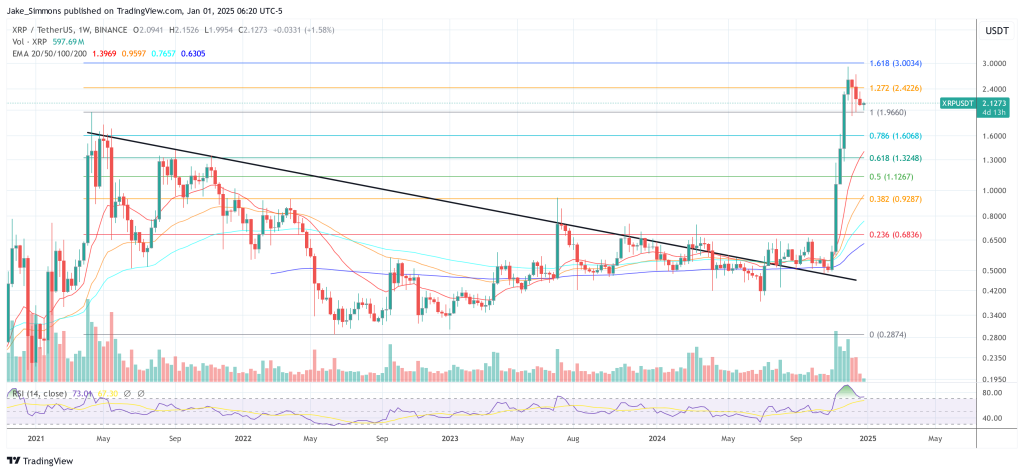In an article on undermine the company and its digital assets.
Deaton highlighted the far-reaching impact of the SEC lawsuit on Ripple, saying: “I don’t think one can adequately estimate the damage to Ripple’s business caused by the sweeping nature of the SEC’s complaint against Ripple. » He highlighted the historical context by noting: “You have to remember that in 2012, when the founders of Ripple created XRP, stablecoins did not exist and the cross-border payments market was wide open and ripe for a technology also disruptive. Obviously, this is still the case today.
Deaton’s Insight on the XRP Lawsuit
Reflecting on Ripple’s strategic decisions during its early operations, Deaton recalled the significant debate over whether Ripple should prioritize smart contracts or smart payments. He highlighted an interesting anecdote from this period: Vitalik Buterin, the co-founder of Ethereum, resided with Stefan Thomas, then CTO of Ripple.
Ultimately, Ripple chose to focus on cross-border payments, a move Deaton sees as strategic given the absence of stablecoins and the vast potential of the global cross-border payments market. “Considering that stablecoins didn’t exist back then, and given the scale of the global cross-border payments market, I can understand why,” Deaton explained.
Supporting Ripple’s strategic direction, Deaton referenced data indicating the exponential growth of cross-border payment flows. In 2022, these transactions exceeded $150 trillion, accounting for more than 96% of overall cross-border payment volume, with projections to reach $250 trillion by 2027. This growth is driven by expanding trade international, the rise of global e-commerce, and increased mobility of individuals and businesses across borders.
Deaton also highlighted key milestones that initially boosted adoption of the digital asset. “After Coinbase listed XRP in February 2019, Coinbase promoted both XRP and the usefulness of USDC for moving money internationally, in seconds and virtually for free. In June 2019, MoneyGram started using XRP,” he said.
However, the narrative took a dramatic turn when the SEC filed a lawsuit against Ripple in December 2021. “After the SEC filed the suit, Coinbase delisted XRP and MoneyGram abandoned the use of XRP and started using XLM instead,” Deaton recounted.
Criticizing the SEC’s approach, Deaton remarked: “Is anyone really going to argue that there was an actual difference, UNDER THE LAW, between MoneyGram using XLM and XRP?” He pointed out the irony of the SEC’s actions, noting: “XLM founder Jed McCaleb is also the co-founder of Ripple and XRP!
Deaton called the SEC’s complaint overly broad, saying: “The SEC’s complaint against Ripple and XRP is, without question, the most overly broad complaint ever filed by the SEC. » He further accused the SEC of potential conflicts of interest, revealing that those involved in the lawsuit later aligned themselves with Ripple’s competitors. “Then these same people who pushed for lawsuits against Ripple to be filed continued to work with or for Ripple’s competitors,” he claimed.
Responding to skepticism about his motives, Deaton clarified his financial interests and independence. “First, as I disclosed in FEC filings, 80% of my net worth is in BTC. Second, when Eleanor Terrett and Charles Gasparino wrote their big article on the case in November 2021, they wrote: “Deaton is definitely not a Ripple fanboy. He criticizes the fact that Ripple itself sold around $800 million…’”
He concluded: “But when you look at the circumstances surrounding how this case was filed, including the massive conflicts of interest, and the fact that the people behind the lawsuit continued to help or work for Ripple competitors, you do not have to do this. be a fan to report it.
At press time, XRP was trading at $2.12.

Featured image from YouTube, chart from TradingView.com

